What is it like for a father whose occupation can put him in harm’s way? I’d been curious to find out for some time so I was delighted when veteran broadcast journalist Ryan Chilcote agreed to speak to me.
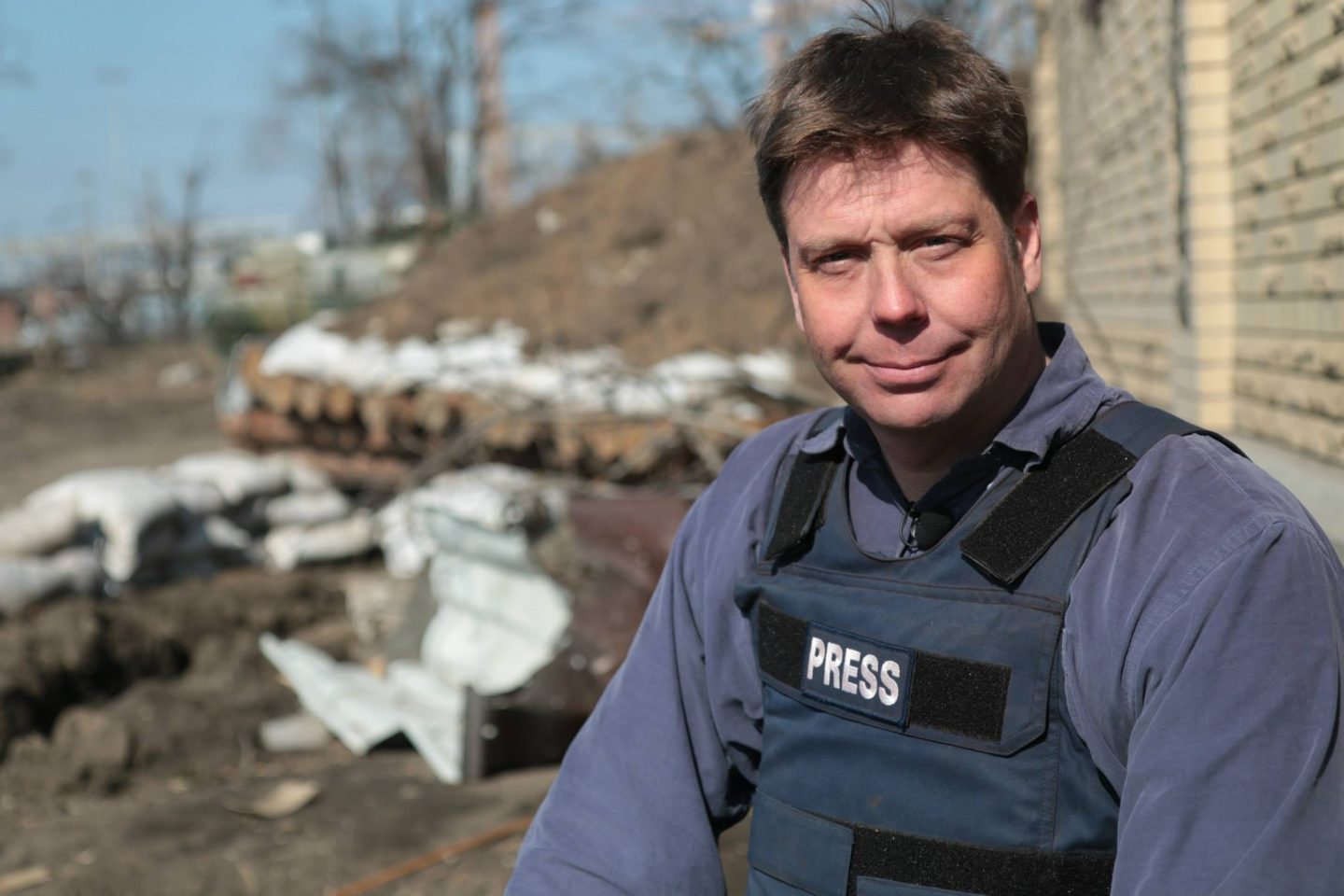
A dad of three, Chilcote has worked for CNN and Bloomberg but today works freelance. US born but based in London, he speaks fluent Russian so regularly reports from that part of the world.
While primarily an economic correspondent, this well-traveled reporter has met Vladimir Putin in the line of his work. As if that didn’t bring enough danger to his life, he has reported from numerous conflict zones including Iraq, Afghanistan and Ukraine.
When I caught up with Chilcote, we didn’t have long to speak. He was in an airport preparing to fly out to Israel so he could report on the recent General Election (I, meanwhile, was sat in a supermarket car park while my youngest daughter ran riot on the back seat)
When we got talking, something struck me right away. While Chilcote’s job can put him in dangerous situations, he chose to go freelance to spend more time with his family.
“I spent much of the last 10 years getting up at four o’clock in the morning, or even earlier because I was on the air at six. When the kids were really young that’s no big deal because you just get disciplined and go to bed at the same time as the kids. It’s a very healthy lifestyle, you kind of go to bed at eight, nine o’clock and you’re okay.
“As the kids get older, they wanted to stay up. As they got into their early teens I think that becomes impossible. You have to choose whether you’re going to miss out on family life, because the evening is pretty much the only time we see our kids, right?
“I just couldn’t do it. I couldn’t go to bed when there was still fun happening in the house. So, for me, you know, being independent and working for myself, in charge of my own destiny, that means I get to choose when I’m at home and when I’m not.”
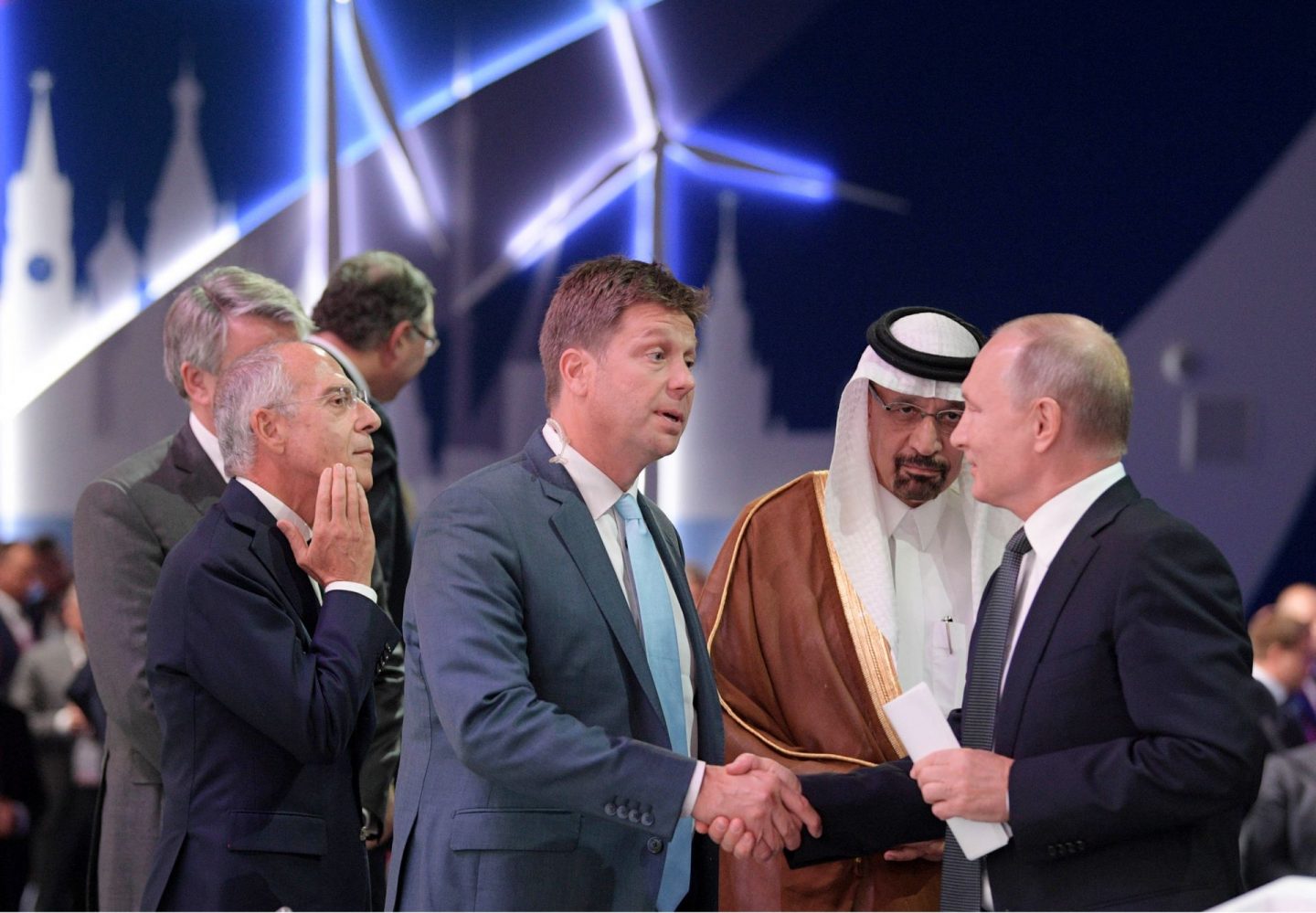
Your family was a reason for going freelance, but can you introduce them?
Chilcote explains that the “rock” of the family and “love of his life” is Nadya, who he met while a college exchange student in Russia back in 1994. Nadia has been a stay at home mum since 2001 when their first child was born.
Expanding on the family set-up, he
said: “I’ve got a soon to be 18 year old boy. He goes to a grammar school and
is getting ready for university and has lots of really big life choices to
make. That’s kind of interesting to watch, and I’m happy to at least be around
some of the time to chip in on that.
“We’ve got a sixteen-year-old boy who is a ballroom and Latin dancer, and he
travels the world.”
It’s hard to believe that Chilcote could have a teenage child who travels the world more than he does, but that’s the reality, as he explains:
“About a year ago, he actually started to travel even more than me internationally. I always used to describe my international travel as “aggressive”, but he’s definitely, for a sixteen-year-old boy, travelling a lot. He goes to China, he goes to Russia, he goes to Ukraine and all over western Europe. Plus, of course, I am from the States so we go back to the States pretty often, and my wife being Russian we’re there quite a bit, so he’s embraced the whole global lifestyle.”
Then of course, there’s child number three. Now he’s freelance, Chilcote has had the luxury of spending more time with her.
“I have a wonderful daughter, her name is Yana. She’s 13 and loves hockey and hanging out with her friends, and she’s turning into a little boss.
“Obviously over the last few years I’ve gotten to know her so much better now that I’m home more often. It’s been really special because, I’ve probably got to spend the most time hanging out with her.
“So, yes, that’s the family. We don’t have any family in the UK, because I’m from the States, my wife’s from Russia. We like to think of the UK as a wonderful hub and home, and we travel to see our relatives all the time.
You mentioned travel. I guess you’re not travelling as much as you were, but that must have had quite a big impact on your family’s life at times?
“Yes, absolutely. Undoubtedly, you know, I have spent my life on the road. I like to tell people that I’ve grown up in the news.
“When I was at CNN, I used to travel a lot but when I travelled, the trips often were much longer. I would do rotations in places like Iraq and Afghanistan, and go away for, you know, a month or two months.
“My record, I think, was three and a half months, when I went to cover the war in Iraq, and I showed up in Kuwait really early before the war started to, kind of, secure my spot. All the junior journalists wanted to get in and I was the junior guy and I thought, ‘Well, if I get there early, then maybe I won’t get’, as we put it in journalism, ‘bigfooted by one of the more senior reporters.’”
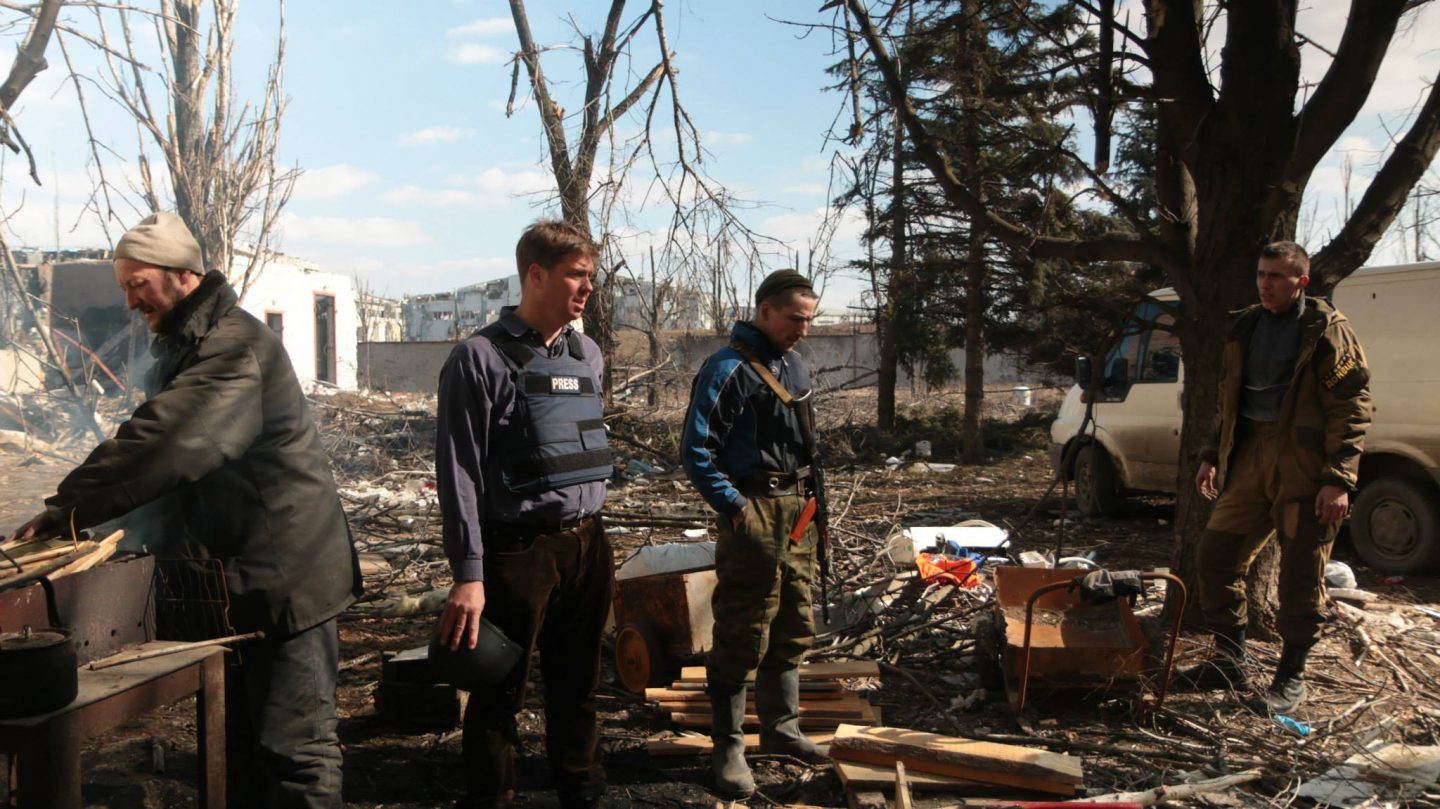
Having heard about how Chilcote travelled, he expands on the impact on his family.
“I would literally try to move in and out of family life. Particularly as my kids were younger, we didn’t really talk about work all that much at home, just because I kind of felt like political news when your kids are really little is maybe not exactly the right thing to be always talking about.
“Then when I went to Bloomberg, I had a TV show called Ryan’s Russia. I’d go off for two, three weeks at a time, but generally my trips were, you know, three or four days.”
Used to hard-news reporting from war zones, Chilcote clearly found his role at Bloomberg less risky.
“I like to tell people the most dangerous thing when I was at Bloomberg, was the buffet at the business conference. I mean, I went to Eastern Ukraine during the war there, so I did still cover war zones a little bit, but clearly Bloomberg TV’s focus is financial markets and business, so there was a lot less of that.
Chilcote then reflects on his past behaviour. He acknowledges that when reporting from stressful situations, he adopted a different mentality, becoming very focused on the job at hand and not so much on his family. It’s a completely foreign mindset to me, but I do understand how it could happen.
“I think it’s tougher, particularly as the kids get older, to keep up with them when you’re gone for longer. I was never particularly good at being the dad that gets on the phone every day and checks in, and I was never that dad that talked to his kids every night on the cell phone or Skype.
“I would literally check out, and then check back in. Not because I think I was a bad dad, I just think that that was the best way to manage, and particularly when the kids were little, and when they’re little they don’t want to get on Skype with you anyway.”
“Bloomberg was good because I was getting out often but in short spurts. And by the way, I still travel quite a bit, because interestingly all of those business relationships, the relationships I had, they remain, and they’re pretty international. So, it still stays that way, except that the difference now is that I do talk to my kids when I’m on the road.
“Right now, I’m away for seven days and there’s a lot of stuff that we need to, you know, talk through. Issues with universities, UCAS application process and everything with my eldest, and several months ago, it was choosing a new school with my sixteen-year-old.
“So, nowadays it’s so easy to keep communication going and the kids want it. I mean, you know, obviously my eldest is eighteen. Five years ago, I don’t think I’d ever heard of WhatsApp or, you know, Facebook Messenger, or Telegram. But now, it’s really easy and my kids are there anyway so I can always find them there and get them, and it doesn’t cost a penny.”
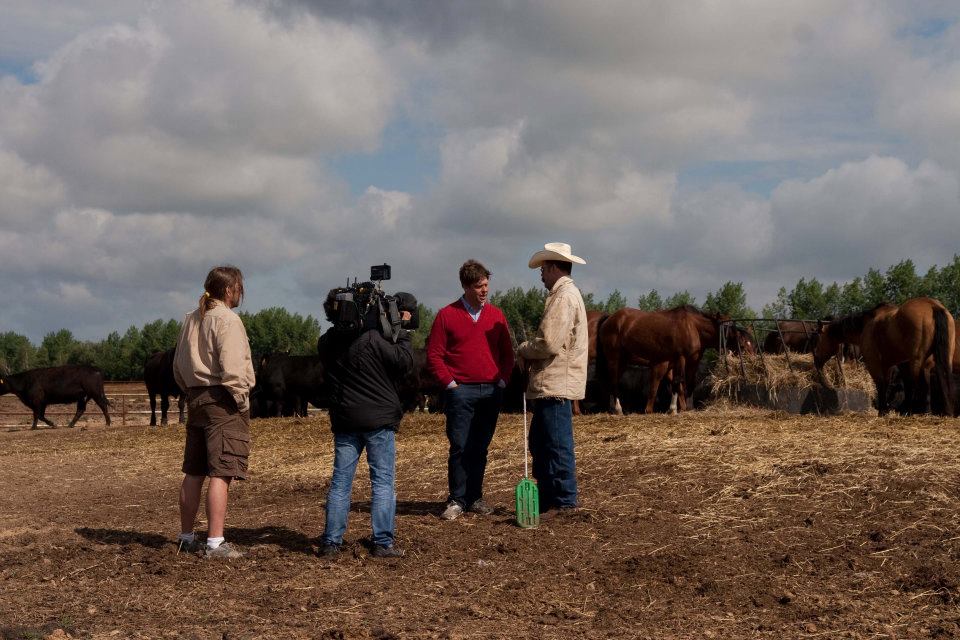
I know this a blunt question, but I have to ask. I’ve spoken to other journalists in the past who’ve been in war zones. When you have reported from conflict zones, surely you must have had concerns that you weren’t coming home, or you were going to return injured?
He makes no attempt to duck the question at all.
“Sure, yes. Absolutely, and I think that that gets driven home. I spent a lot of time covering the US military. A lot of times when American soldiers go into conflict, they write letters home, you know, just in case.
“There’s something kind of troubling about that, but actually there’s something kind of grown-up about it too, and so yes, I always thought about that.
“In fact, I was in Iraq when Saddam was hanged. It was, like, my sixth trip or something, and by that time Iraq had gotten exceptionally dangerous, just off-the-charts silly dangerous, to the extent that one could really question the value of the journalism that one was able to do because it was so restricted and so dangerous to travel round.
“I looked around the newsroom and most of the other reporters or producers were younger than me or didn’t have kids. I thought; ‘there’s just something different here, I really can’t just make decisions based on my own self-interest and love of adventure anymore.’
“Ever since then I’ve taken a lot more thought about how I approach danger. I was just in Afghanistan recently and, you know, I could tell you that even though I didn’t need to, and it cost me money, I made sure that I had thought about security.
“Also, as I’m sure many journalists will tell you, it messes with your head, because of all the adrenaline. Even if you’ve got crazy kids, as we all do, it’s a different kind of craziness, and so that adds an extra layer of adjusting.
“Any journalist that’s returning from a conflict place, they really need a little bit of an easing-in period, I think. Everybody needs it.”
I was curious to ask about your kids and their approach to what you do. Are they, sort of, ‘Whatever, Dad’s hanging out with Putin again,’ or they interested in what you do?
“That’s a nice question. I think they usually kind of go, ‘Ah, nothing to see there, no big deal,’ but I do notice that it kind of turns into bragging rights on occasion.
“They don’t tell me that they think it’s cool, but they tell their friends about it, and I learn about it in a roundabout way. That’s kind of neat. Now, increasingly, as they’re getting older, I’ve started taking my kids with me. Not so much on the reporting stuff, but I’ve started taking my oldest son, for example, with me when I go to moderate a discussion at conferences. He’s even doing a little bit of reporting.”
Senior reporters are notoriously awkward individuals, I found Chilcote to be very warm, open and easy to talk to. I could have spoken to him all day but he was, genuinely, going through the airport and by this point had reached the security desk so I only had time for one final question.
Where can people find out more about you and your work?
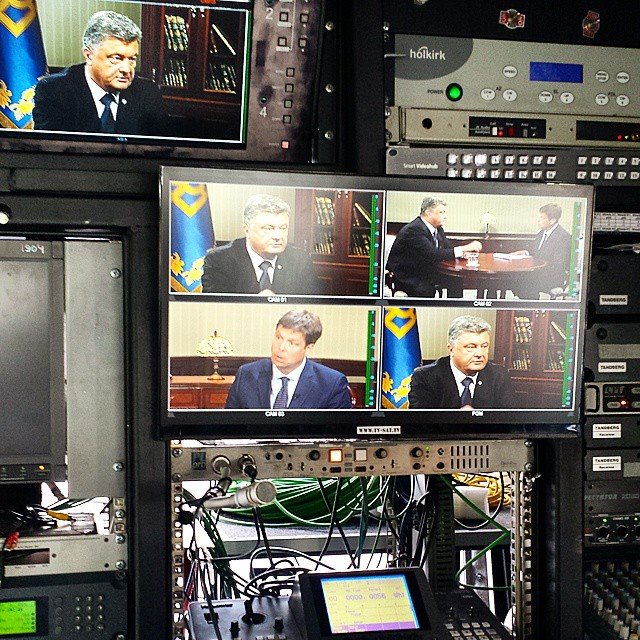
“You can follow my work @ryanchilcote on Instagram and Twitter or on PBS NewsHour, and that’s pretty much it, and I’m off to Israel now!”
As a former journalist myself, it was fascinating talking to Chilcote. He’s clearly battle hardened and while many of his comments came as no surprise, I was intrigued at how he has, when necessary, just drawn a line and separated work and family life. It’s also fascinating how he’s appreciated his family are getting older and has actively become more hands-on with his children as a result.
War reporting is only one aspect of this man’s work, but it’s something I always wished I had been able to experience when I was a reporter. Speaking to Chilcote makes me want to do it even more and hopefully one day I will have that opportunity (I just hope my wife doesn’t read this).
I do thoroughly recommend checking out Chilcote’s news reports. He has packed a huge amount into his career to date. If you have any thoughts about this interview, please do leave a comment below.
Ryan Chilcote is represented by Andromeda Talent. To find out more, visit the Andromeda website.

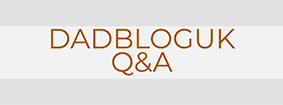






2 thoughts on “When danger comes with the job: Q&A with journalist Ryan Chilcote”
Hi John, what an interesting read. These days the news has become something we take for granted and don’t stop to think about the people who actually put there life on the line to report the truth.
xx
You make a very good point Debbie. We are all so used to getting news for free I don’t think we do think of the people that create it. Added to that, 24-hour rolling news means there’s a constant thirst for news and much of it is done badly and in a hurry. Individuals like Ryan produce more analytical, in-depth news and this has far greater value I think.